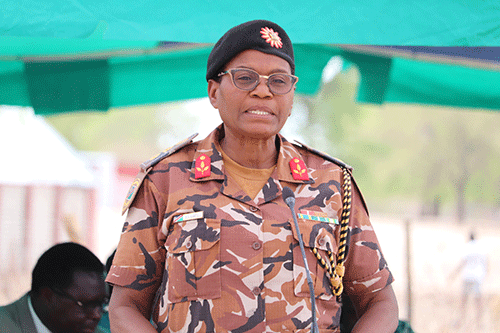OSHEKASHEKA – The police in the Oshana region have recorded 110 rape cases so far this year, of whom 46 are minor children, 62 women, and two men.
In addition to the rape cases, the region has also recorded 50 cases of suicide, 41 of whom were men.
The revelations were made at the activation of the 16 days of activism against GBV campaign at the Oshekasheka village on Tuesday.
Police regional commander, Commissioner Naftal Lungameni Sakaria said cases of gender-based violence (GBV) have been on the increase since 2021.
In a speech read on his behalf by Deputy Commissioner Martha Kampolo, Sakaria said the homes where families ought to feel safe and protected continue to be risky, unfriendly, and scary for the vulnerable members of society.
The commander said despite the grim picture of GBV cases, statistics suggest that women are taking steps to report such crimes.
“This campaign stands as a beacon of hope and a call to arms in our collective effort to combat this serious problem in our society, particularly in our region,” he stated.
Sakaria said violence against women and children is one of the most widespread, persistent human rights violations in the country.
“GBV is also a hindrance to the attainment of gender equality and the realisation of social, economic and safety and security goals, as it erodes the confidence of survivors to contribute to the overall national development efforts,” he added.
In addition to physical abuse, GBV takes many other forms such as emotional abuse, and economic and sexual exploitation.
He added that the role of law-enforcers extends beyond policing as it also protects, empathises and prevents crime.
“When responding to incidents of GBV, our approach must prioritise empathy and support for survivors. Creating a safe space and ensuring swift GBV enforcement and efficient assistance for survivors is an important part of our duty,” Sakaria stressed.
However, the police continue to face obstacles which causes delays, increasing risks as survivors do not receive the required support from families and the community at large.
Despite those hindrances, individuals are encouraged to speak out when they experience or witness acts of GBV.
“By speaking out, individuals can receive the support they need. It is crucial that we ensure that avenues for reporting, assistance and counselling are accessible and widely known,” he noted.
* Nuusita Ashipala is an information officer at MICT Oshana.


